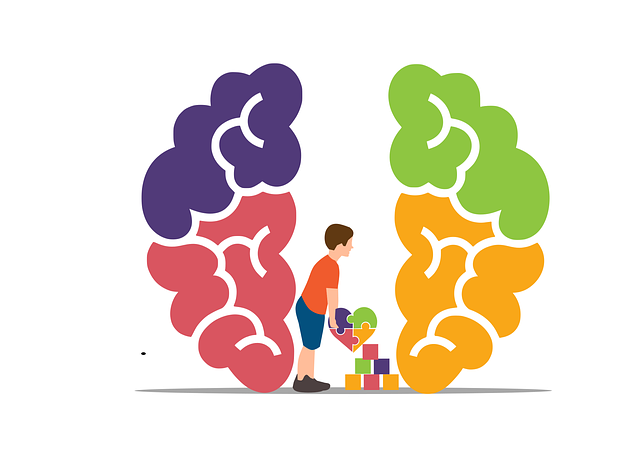In fast-paced Westminster, managing stress is key for mental health, with chronic stress leading to issues like anxiety, depression, and OCD. Workshops focused on stress management, including mindfulness exercises and CBT, are essential tools for building resilience. These workshops, offered by Westminster Obsessive Compulsive Disorder Therapy, empower individuals through structured programs, peer sharing, and holistic practices like deep breathing and yoga. Success is measured through feedback and outcome measures, with Self-Care Routine Development proving highly effective in enhancing participant satisfaction and mental wellness.
Stress management workshops play a vital role in empowering individuals to navigate life’s challenges. This article explores effective strategies for organizing such workshops, focusing on mental health awareness. We delve into understanding stress and its impact, highlighting the significance of structured interventions like these. From designing engaging content to fostering supportive atmospheres, these workshops offer a game-changer approach to Westminster OCD therapy, promoting resilience and overall well-being. Learn how to measure success and continuously enhance these programs.
- Understanding Stress and Its Impact on Mental Health
- The Role of Workshops in Stress Management
- Designing Effective Stress Management Workshops
- Creating a Supportive Environment for Participants
- Measuring Success and Continuous Improvement
Understanding Stress and Its Impact on Mental Health

Stress is a multifaceted aspect of modern life that can significantly impact mental health if left unaddressed. It’s essential to understand that stress isn’t always harmful; moderate and manageable stress can enhance performance and focus. However, chronic or excessive stress can lead to various mental health issues, including anxiety, depression, and even more severe conditions like Obsessive-Compulsive Disorder (OCD). In the bustling city of Westminster, where lives are often fast-paced and demanding, recognizing and managing stress is crucial for overall well-being.
The impact of prolonged stress on mental health cannot be overstated. It can contribute to burnout, a state characterized by emotional exhaustion, cynicism, and ineffectiveness. Mental illness stigma reduction efforts highlight the importance of early intervention and support systems. Workshops focused on stress management can play a pivotal role in equipping individuals with coping strategies, thereby fostering resilience against the adverse effects of stress. Additionally, risk management planning for mental health professionals is essential to ensure they have the tools to maintain their own well-being while assisting others.
The Role of Workshops in Stress Management

Workshops play a pivotal role in stress management, offering a structured and supportive environment for individuals to learn and practice effective coping strategies. They provide an accessible entry point into mental health education programs design, particularly for those seeking relief from conditions like Obsessive Compulsive Disorder (OCD). Through interactive sessions, participants engage with various stress reduction methods tailored to their unique needs. These workshops foster a sense of community, enabling individuals to share experiences and gain insights from peers facing similar challenges.
By incorporating evidence-based techniques into the curriculum, workshops empower attendees to proactively manage stress. Mental wellness becomes a collective focus, as facilitators guide participants through mindfulness exercises, cognitive-behavioral therapy (CBT) techniques, and other proven strategies. This holistic approach not only addresses immediate stress but also equips individuals with long-lasting tools for maintaining mental resilience in their daily lives, even in the midst of bustling urban settings like Westminster.
Designing Effective Stress Management Workshops

Stress management workshops are a powerful tool to empower individuals and communities, offering tailored guidance to navigate life’s challenges. When designing such sessions, it is essential to create an engaging and interactive environment that fosters open communication. Incorporating diverse techniques like mindfulness exercises, cognitive-behavioral therapy elements, and self-care practices ensures comprehensive coverage of stress management topics. For instance, a structured program could include a combination of lectures, group discussions, and practical activities, allowing participants to explore their unique stressors and develop personalized strategies for resilience.
At Westminster Obsessive Compulsive Disorder Therapy, we understand the interconnectedness of mental health issues, including anxiety and stress. Our workshops go beyond surface-level techniques by offering evidence-based practices such as Mood Management and Mental Wellness Journaling Exercises. We encourage participants to delve into Self-Care Routine Development, providing them with tools to enhance their overall mental wellness. Through these interactive sessions, individuals gain the confidence to take charge of their well-being and cultivate a healthier, more balanced lifestyle.
Creating a Supportive Environment for Participants

Creating a supportive environment is key to the success of any stress management workshop. This means cultivating a safe and non-judgmental space where participants feel comfortable sharing their experiences and insights. At our workshops, we prioritize building a sense of community by fostering open dialogue and encouraging active engagement. This approach helps individuals with obsessive-compulsive disorder (OCD) in Westminster connect with others who share similar challenges, fostering a supportive network that extends beyond the workshop setting.
Additionally, incorporating practices that promote relaxation and mindfulness can significantly enhance the overall experience. Techniques such as deep breathing exercises, guided meditations, and gentle yoga not only help manage anxiety but also contribute to self-esteem improvement. By focusing on these holistic aspects of mental health, our workshops empower attendees with practical tools for risk management planning—a crucial aspect of fostering resilience against OCD symptoms and promoting anxiety relief.
Measuring Success and Continuous Improvement

Measuring success is a vital aspect of any workshop, especially those focused on stress management and mental well-being. At our Westminster Obsessive Compulsive Disorder (OCD) therapy sessions, we go beyond mere participation to evaluate the effectiveness of our programs. By collecting feedback from attendees, we gain insights into the practical application of coping skills development and positive thinking techniques in their daily lives. This data is invaluable for refining our workshops and ensuring they meet the evolving needs of our diverse clientele.
Continuous improvement is a cornerstone of our organization’s philosophy. We analyze survey responses, individual progress reports, and outcome measures to identify areas where we excel and aspects that may require adaptation. Incorporating Self-Care Routine Development for Better Mental Health into our curriculum has shown remarkable results in enhancing participants’ overall satisfaction and resilience. This data-driven approach allows us to stay relevant and effective in supporting individuals on their journeys towards better mental health.
Stress management workshops play a pivotal role in empowering individuals to navigate life’s challenges. By understanding stress, its effects on mental health, and leveraging evidence-based techniques, these workshops can significantly improve well-being. As discussed in this article, designing engaging sessions, fostering supportive environments, and measuring success through continuous improvement are essential for organizations like Westminster Obsessive Compulsive Disorder Therapy to make a lasting impact. Through such initiatives, participants gain valuable tools to manage stress effectively, enhancing their overall mental resilience.














